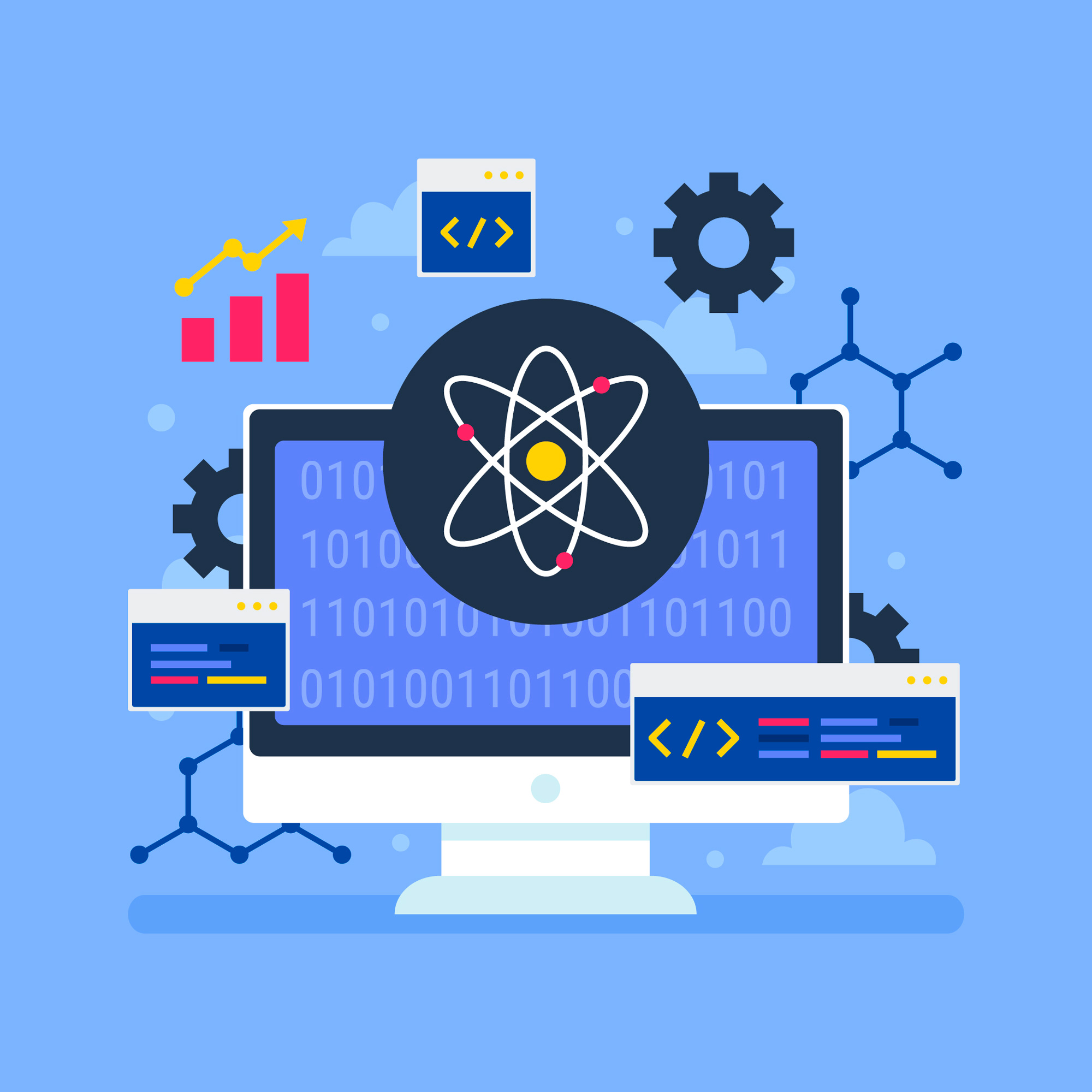Indeed, when it comes to mobile app development where changes are permanent, the selection of the proper framework is a decisive action for your project. This is a testament to how much more heated the debate between React Native and Native Development shall get as we enter the year 2024. Thus, the real question is: So that should you go for in your next app? Here, however, we will give you more comprehensive information to assist you in making a correct choice.
Introduction
Are you torn between React Native and Native Development for your mobile app project? You’re not alone! Both have their unique advantages and challenges, making it crucial to understand their differences and potential impact on your project. In this article, we’ll explore the key aspects of both approaches to help you make the best decision.
What is React Native?

It is now time to make your decision between the two mobile application development platforms: React Native and Native Development. You’re not alone! Due to their differences, both methods also have some benefits and drawbacks, and it is essential to define them in order to assess the possible effect on the undertaking. Since we are going to be comparing the two types of programs, we will be looking at the important aspects that will enable you to make the right decision regarding each one of them as explained in this article.
Key Benefits of React Native
React Native is an open- source JavaScript framework created by Facebook, which is software used by developers in order to create applications for Android and iOS platforms. They allow the development of the applications that will run on both the iOS and Android smart devices.
Code Reusability: Create once, use multiple times.
Hot Reloading: Feedback on alterations can be received as soon as possible.
Strong Community Support: All in all, the article mentions various aspects that are beneficial to the developers of the web platform, including extensive resources and plugins.
What is Native Development?
Native Development which aims to design and develop applications that will strictly run on one operating system; iOS or Android, you use Swift for iOS, Java or Kotlin for Android. This approach helps in making certain that the app maximizes blueprint of the platform properties and performance potential.
Key Benefits of Native Development
Optimal Performance: The advantages of native interaction include direct access to native APIs.
Superior User Experience: Based specific design requirements of the platform where the project is to be hosted.
Robust Security: Better security gains in clear and proficient platform-specific characteristics.
Key Differences Between React Native and Native Development
1. Performance Comparison
The performance is generally higher in native apps since these are developed and optimized to run in this environment. Overall, the potential of the React Native apps tend to work fairly well, although they may not provide the same level of fine-tuned performance which is expected of native apps where heavy-duty computations and heavy graphics are involved.
2. Development Speed and Cost
React Native in particular has the advantage of spitting everything twice and allowing for reusing code in development. On the other hand, Native Development means that the respective applications are developed as independent programs for either iOS or Android and often call for setting up different teams and managing two different code bases, which ultimately increases the costs and time necessary for applications’ creation.
3. User Experience
As for developing native apps, these are beneficial in delivering a rich experience, smooth interaction and reliability. Fully native mobile apps attempt to achieve this and while applications developed using React Native do their best to replicate this they often do not, especially with heavier animations and dynamic libraries.
4. Code Reusability
The best thing about React Native is code reuse, the ability to share components and code snippets across projects. In general, one can re-use a fair amount of code from iOS to Android whereas when using Native Development there is a need for a set of codes for each platform.
5. Community and Ecosystem
It reaffirms that React Native has a strong and engaged community and that, compared to other frameworks, there’s a greater variety of libraries and tools. Native Development communities are also active but the information resources are divided almost in half in support of iOS and Android.
Use Cases for React Native
React Native is ideal for:
These are the following target market: Start-ups and the small business entity who have a small capital base.
Such a type of application where application needs to be made quickly and deployed at a faster pace.
Projects that are to be launched in both the IOS and Android for people of multiple ages.
Examples:
Social media apps
E-commerce platforms
MVPs for startups
Use Cases for Native Development
Native Development is best for:
Services with high operational intensity that require complex processes or functions to be performed.
Those rare applications which need tight integration with specific aspects of the targeted platform.
Situations when the importance of increased user value is paramount.
Examples:
Gaming apps
AR/VR applications
Finance and banking apps
Future Trends in Mobile App Development
As technology evolves, we can expect several trends to shape the future of mobile app development
1.AI and Machine Learning Integration
The integration of AI and machine learning will persist in augmenting app usability, providing tailored user implementations and optimized performance.
2. Augmented Reality (AR) and Virtual Reality (VR)
Augmented Reality (AR) is the addition of computer-generated images and data to a real view of the environment, Virtual Reality (VR) creates an artificial environment and simulates the physical presence of objects.
As long as more applications use AR/VR through new frameworks such as ARKit or ARCore, it is possible to speak about new opportunities that will be presented by this rapidly developing technology.
3. 5G Technology
The use of technology such as 5G will ensure enhanced performance and reliability of the apps while at the same time creating opportunities for new app creation
4. Progressive Web Apps (PWAs)
PWAs will trend because these Web Apps will provide features that are similar to mobile applications but without the need for standalone application development.
Conclusion
Therefore, the final decision on which tool to use between React Native or Native Development will depend on specific eventualities of the project, the available and requisite resources as well as the achievement of project objectives. React Native is a perfect choice if one wants to develop an application with less time and effort while still being Native Development is the best option for people who put an emphasis on their app’s performance and smooth functioning. In this way when you know the advantages of this approach and the disadvantages of the other, you will be in a better position to make the decision according to the set goals.
Also Read: Integrate Payment Gateways
FAQ
A1. Using the React Native developers can build apps for multiple platforms with a single code base but it offers minimum performance as compared to Native Development where the developer needs to create two completely different versions for iOS and Android respectively but the performance and user interface is high.
A2. React Native is good for many complex apps, although for getting the absolute best, finest levels of functionality and performance, raw and native development may be better instead.
A3. For a web-developer it’s more natural to work with React Native because it supports hot reloading, which means that you can see the changes of the code instantly without compiling all the application again.
A4. Yes, but it can take a lot of work to guarantee that all the functionalities that are implemented are supported with great performance in React Native.
A5. In applications like Facebook, React Native usually provides a lower development cost, as the code is reused on both platforms, whereas Native Development may be more expensive because there are two code formats.


